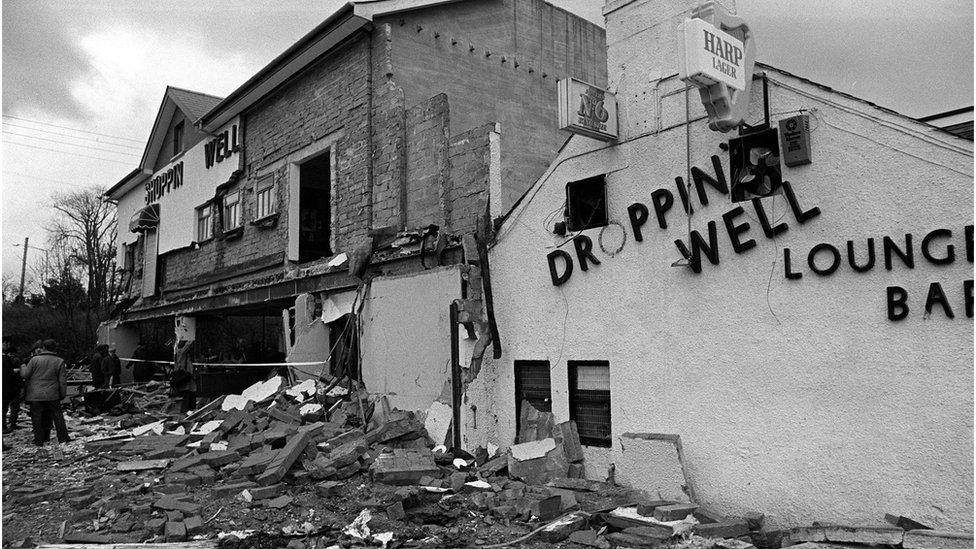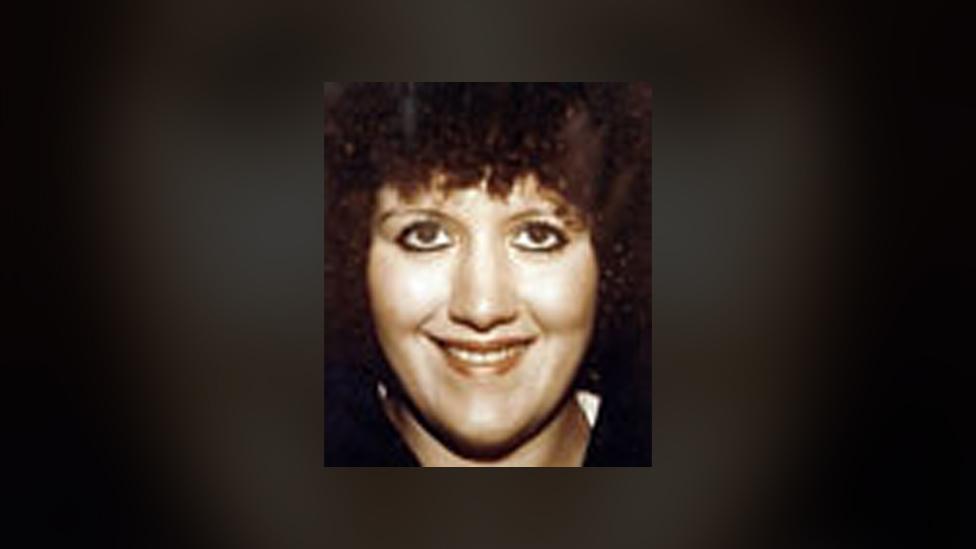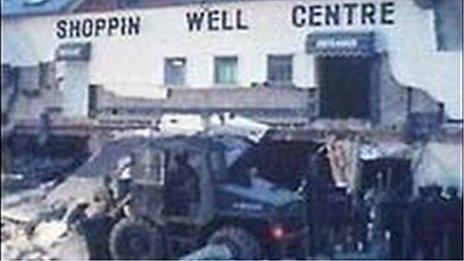Droppin' Well bombing: Victim's brother says pain has never gone away
- Published

The Irish National Liberation Army carried out the attack.
The brother of a woman killed in the Droppin' Well pub bombing 40 years ago has said the pain of her death has never gone away.
Six civilians and 11 soldiers died in the attack in Ballykelly by republican paramilitaries on 6 December 1982.
Ruth Dixon, who had a five-year-old son, had been on a night out to celebrate her 24th birthday.
Her brother Timothy said for many years his family struggled to talk about her death.
Speaking to BBC Radio Foyle's Breakfast Show, Timothy said life changed immeasurably for his family that night in 1982.
"The devastation was horrendous," he said.
"Back then there was no counselling, you were left to get on with it.
"It is hard to talk in the family, so upsetting. We didn't really talk about it for a long time.
"Even yet we find it hard, it affected every one of us terribly".
The Irish National Liberation Army (INLA) claimed responsibility for the attack on the County Londonderry pub.

Ruth Dixon was happy-go-lucky, her brother said
Mr Dixon, whose family live in Limavady, remembers the day his sister died had started as a normal, happy one.
Ruth was so bubbly, so happy and full of laughter.
People who knew her, knew how lovely, friendly and happy-go-lucky she was, he said.
It was her birthday and that evening Ruth was going out with friends to celebrate.
Just before 23:00 GMT, Mr Dixon took a phone call from a friend to say there had been a bomb at the pub.
He and his friend made their way to the village.
"We got there before the cordons had been set up, locals were beginning to dig through the concrete and stuff, the fire service and police landed then," he said.
"Everybody was just trying to get people out. It was shocking to see".
"We knew we had to start looking for her. There were ambulances going to Coleraine hospital, Limavady hospital, to Altnagelvin.
"We started the search then, searched all night for her."
At about 06:30 the following morning, staff at Altnagelvin Hospital in Londonderry told him an unidentified woman had been brought in.
He was taken to the morgue to identify her.
"From that second life changed. I had to come back and tell my parents, it was terrible," he said.
"That first initial shock is like you can't breathe, it is a horrendous pressure on your chest.
"You don't ever want to experience it but it comes back, you get flashbacks. It never really goes away, triggers will set it off".
A memorial service for the victims took place in Ballykelly on Sunday.
'She asked me to hold her'
Col Bob Stewart, who served in the Army in Northern Ireland during the Troubles, was incident commander for the bombing.
"I heard the bomb go off. I rushed there. It was dark and completely chaotic," he told BBC Radio Foyle.
"We went in with torches and we started to find people. It was incredibly upsetting. It still is.
"I knelt down beside a young girl. The poor girl was so badly hurt.
"She asked what happened and asked me if she was hurt.
"There was a lot of blood everywhere. She asked if she was going to die. I had to tell her she was. She asked me to hold her.
"I was very pleased to tell her mother years later that she was in no pain."
Related topics
- Published9 December 2012
